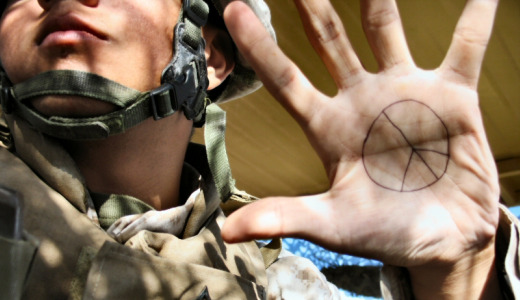
President Obama’s decision to send 30,000 more troops to Afghanistan has generated skepticism and dismay among his supporters. And rightly so. We’ve said it before, and we say it again, joining a wide spectrum of Americans: there is no military solution to the Afghanistan crisis.
The president has inherited a huge problem from the Bush-Cheney warhawks. As Obama correctly implied in his Dec. 1 West Point speech, the Bush administration was so obsessed with grabbing control of Iraq that, after invading Afghanistan and implanting a U.S. occupation and warlord-based client government there, it basically walked away, allowing chaos and suffering to build.
But we know the problem didn’t start then. It was U.S. Cold War anti-communism that promoted and bankrolled the rise of Osama bin-Laden and al Qaeda, just as that same policy suppressed democratic, secular and progressive people’s governments and movements around the world, helping to fuel reactionary religious extremism and terrorism itself.
War and militarism have been the tools of that Cold War policy, and an entrenched military establishment continues to wield enormous power in Washington. Obama has shown courage in seeking to turn that around, in his efforts, however halting, to promote diplomacy in the Middle East and with Iran, and his important push for global nuclear disarmament, which he mentioned in his speech. In fact, those initiatives have a bearing on resolving the Afghanistan crisis, and they need to be much more strongly pursued.
Obama briefly and indirectly alluded to the ugly Cold War history in his speech, but the fact is, people in the affected regions are well aware of this history, and rightly distrustful of U.S. military actions, and that will include this latest troop surge.
It’s good that Obama linked his surge to an exit plan, saying, “After 18 months [i.e., July 2011], our troops will begin to come home.” But he gave no end date. He promised to be open and honest about the cost, which he put at $30 billion for one year, but did not give specifics about how it would be paid for. This, at a time of mounting federal debt, with Americans looking for massive federal spending to restore jobs and vital public services, fund universal and affordable health care and green our economy. Those are national security needs of vast importance, and failure to meet them will endanger the entire progressive agenda that Obama was elected to carry out. As the body count rises from the Afghanistan war, prioritizing guns over butter could spell political defeat for the administration in 2010 and beyond, with far-right extremists riding public discontent back to control of Congress and even the White House. And that’s an even bigger national security danger for our country, and the world.
Obama was short on specifics about the dynamics of the Afghanistan situation as well. Who exactly will those additional troops be fighting? It’s not clear what “al Qaeda” actually is at this point. How will U.S. troops distinguish Taliban leaders from farmers or jobless Afghans helping the Taliban out of fear, despair over their dismal conditions, or anger over foreign occupation? And who are our allies in Afghanistan? The highly questionable Karzai government? Another set of corrupt warlords?
It is significant that even leading moderate Democrats are raising these questions with administration officials now testifying before the Senate. But, as Obama himself has reminded us so often, it’s up to us, the people, to bring about the change we need.
Now more than ever, progressive Americans face the challenge of protecting, expanding and deepening the unity of the broad labor-centered people’s movement, to fight for a “butter, not guns” policy, at home and abroad. We cannot allow Afghanistan to become the far right’s road back to power.
That means pressing Congress and the White House to bring our troops home, to actively pursue peace negotiations involving a range of political forces in Afghanistan and all the regional powers.
It means supporting and pressing the president on nuclear disarmament and pressing him to do more to resolve the festering Israeli-Palestinian crisis.
It means mobilizing millions of ordinary Americans to demand “jobs, not bombs,” with massive federal spending, not for war, but for public works jobs.
It means deepening our involvement in the everyday struggles of the people, and helping build a bigger-than-ever grassroots movement for peace, jobs and a secure future for ourselves and our children.












Comments